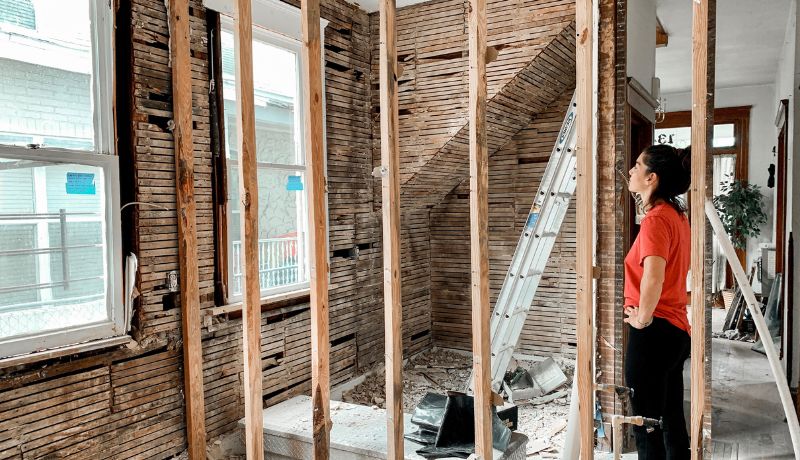This article is a guide on how to make an investment in rental properties, with specific advice on finding and purchasing the right type of property. It covers some of the risks associated with investing in rental properties and provides detailed information on when you might want to consider investing in a property instead of buying one outright.
What is Passive Income?
Passive income is income earned from rental properties that does not require any active work on your part. Properties that generate passive income are typically owned and operated by a property management company. As long as the rent is paid on time, the property owner does not have to do anything other than collect the rent. This type of income can come from a single rental property, a handful of rental properties, or even an entire portfolio of rental properties.
How to Invest in Rental Properties for Passive Income?
In order to start earning passive income from rental properties, you first need to find quality properties that fit your investment budget. Once you have a few potential candidates, itís time to look into property management services. A good property management company will take care of all the details related to keeping your rental properties in shape and generating healthy rents. In addition, they will provide marketing materials and ongoing support so that you can focus on running your business.
To get started with investing in rental properties for passive income, start by consulting with a qualified financial advisor. They can help you identify potential risks and rewards associated with this type of investment, and they can also offer guidance on how to structure your investment portfolio for maximum passive
Benefits of Investing in Rental Properties
In today's economy, rental properties are a great way to make passive income. Here are some of the benefits to investing in rental properties:
-You can earn a fixed income without having to manage the property yourself.
-Rental properties are typically less risky than other types of investments and provide stability over time.
-Rental properties can be a good way to diversify your portfolio, providing you with additional income sources.
-If you're looking for a passive income stream, rental properties may be the best option for you.
How to Invest in Rental Properties
If youíre thinking about investing in rental properties, there are a few things to keep in mind. Here are four tips for making the most of your rental property investment:
1. Do your research. Before you invest in any rental property, do your homework and research the market conditions in your area. You want to make sure the property is worth investing in and that the area has a strong economy.
2. Get advice from a professional. If you donít have experience buying or selling real estate, get help from a qualified professional. They can help you find the right property and guide you through the process of buying or selling it.
3. Be prepared to take on some risk. One of the benefits of investing in rental properties is that they usually offer higher yields than other forms of investments, but they also come with risks. Make sure you understand those risks before you invest and factor them into your decision-making process.
4. Stay disciplined. Like with any investment, be disciplined when it comes to renting out your properties and make sure you're following all the rules and regulations in your area. This will help protect both you and your tenants from any legal problems down the
Risks Involved with Investing in Rental Properties
There are a few things to consider when investing in rental properties for passive income. One of the most important factors is understanding the risks involved.
One of the biggest risks associated with rental properties is property flipping. This is when a property is bought and then quickly sold, often for a profit, to someone else. This can be risky because thereís a lot of uncertainty surrounding the market at any given time, which could lead to an overall downturn in the market or even a propertyís value decreasing.
Another big risk is that you might not be able to find tenants who will rent your property at a desirable rate. If your property isnít rented at a rate that covers your expenses, you could lose money.
There are also risks associated with investing in rental properties that donít involve financial risk. For example, if you live in the area where you want to invest and rent out your properties, you may have to deal with noise and nuisance issues. If your tenants donít live up to your expectations, it can reflect poorly on your reputation as an owner or landlord.
Conclusion
When it comes to investing in rental properties, there are a few things you need to keep in mind. One of the most important factors is to make sure that you research the market carefully before making your investment. By doing this, you can make sure that you're getting a good deal on a property and that it has potential for growth. Additionally, be prepared to do some maintenance work on your rentals Ė this is often overlooked but essential for keeping them healthy and in good condition. Finally, remember to always have cash reserves set aside in case something unexpected comes up Ė no one knows the rental market better than an experienced landlord!
This article is a guide on how to make an investment in rental properties, with specific advice on finding and purchasing the right type of property. It covers some of the risks associated with investing in rental properties and provides detailed information on when you might want to consider investing in a property instead of buying one outright.





![Top 5 Best Ways to Create Your Own Cartoon Character [For Non-illustrators] Top 5 Best Ways to Create Your Own Cartoon Character [For Non-illustrators]](https://www.chattycathy.blog/uploads/img/632d545cdf266.jpg)
